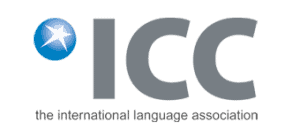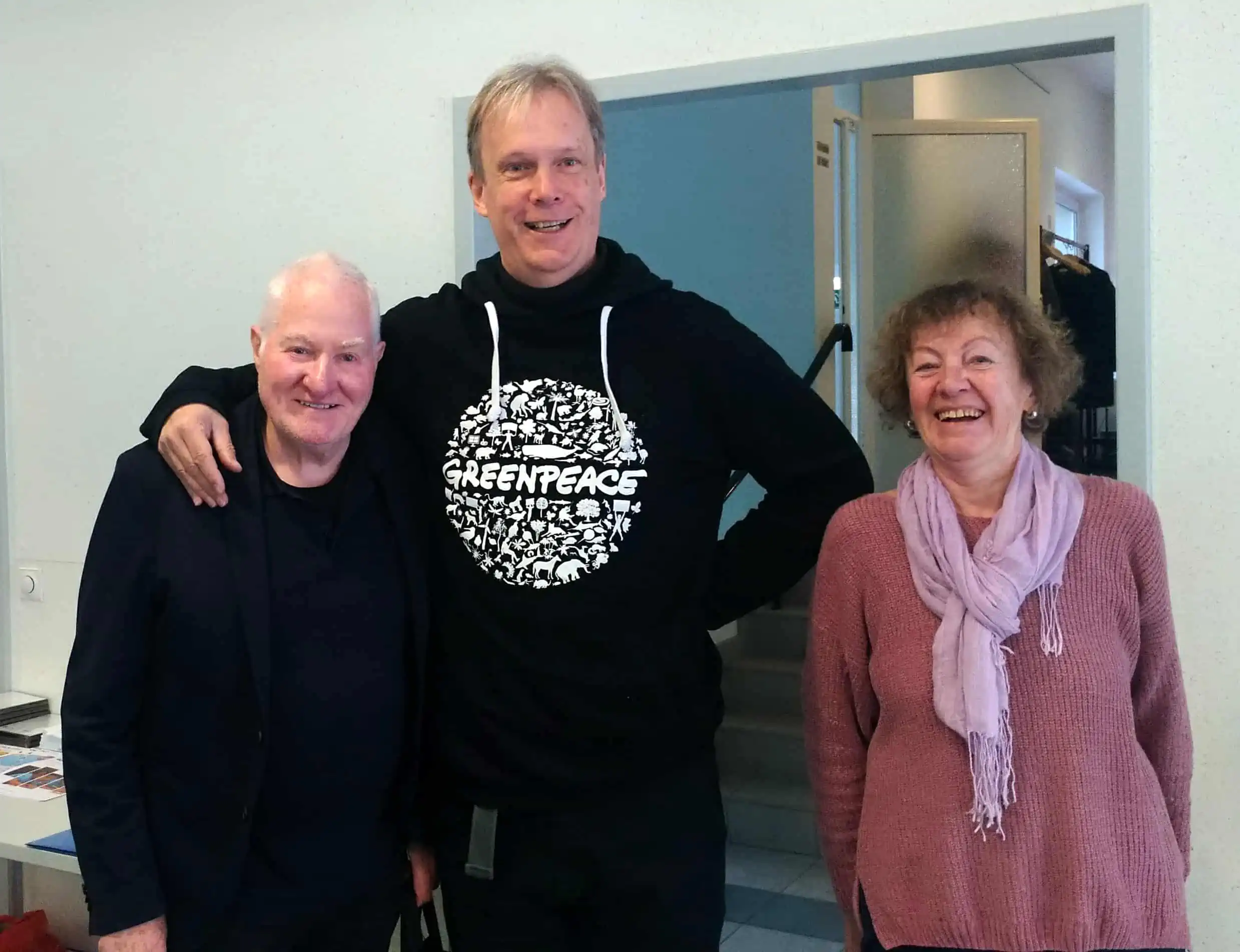History of the ICC
The ICC was established as a European organisation in Warsaw in 1994 as a not-for-profit organisation under German law. The ICC held its first regular annual general meeting in Milan in May 1995. The founding General Secretary was Tony Fitzpatrick, who held this position until stepping down in 2007, though remaining on the board, and returning as co-chair in 2013.
Founder, Tony Fitzpatrick
Tony was a very well-known and highly experienced member of the language education profession, working for the Deutscher Volkshochschul-Verband (DVV).
He held a passionate belief that language education is a means to bring people together and a force for good.
Tony was one of the driving forces behind developments in language teaching and most significantly language testing from the second half of the last century right up until the last few years when he took a step back from the ICC Board.
He was an adviser to the Council of Europe’s modern languages projects from 1978. He was the author of a number of standard textbooks for the teaching of English as a foreign language to adults, of which a number are concerned with vocationally oriented language learning. From 1978 – 1995 he was responsible for modern language projects in the pedagogical Institute of the German Adult Education Association, where he developed language specifications and certificate examinations for the German Federal Ministry of Education and Science.
From 1989 to 1996 he was the co-ordinator of the foreign languages group of the German Ministry of Education and Science’s “Concerted action in further education”, and then co-ordinated a number of language projects financed by the European Union.
He founded the ICC – initially the International Certificate Conference – in 1994.
His indefatigable energy and single-minded vision saw the ICC grow from a testing and validation body in Germany to gaining an international profile through the Council of Europe, the European Centre for Modern Languages (ECML) and involvement in countless EU funded projects.
Under his watch the ICC first developed a teacher training framework that has now become EUROLTA. Fundamental to the success of this was the close relationship Tony set up with the Swiss company Migros, who continue use EUROLTA in their internal teacher training.
Under his watch the ICC developed benchmarks for evaluating the quality of language testing systems and materials.
He was also active beyond the ICC as author, speaker and consultant. He was involved in the BBC ‘Follow Me’ TV and video course that had a huge impact on ELT in China and around the world. He was regularly involved in the ECML in Graz, and a speaker at numerous events and conferences.
Those of us privileged to work alongside him will remember him for his energy, constant curiosity and generosity of spirit. He was gregarious and sociable, as those of us who attended many ICC conferences or board dinners in Offenbach, Mainz or Ober-Ursel can attest.
Jack Lonergan
Jack Lonergan was Secretary General of the ICC from 2007 to 2009.
He became involved in the ICC while living in Germany where he knew the founding Chair, Tony Fitzpatrick, for many years as they were both working in the same language education circles.
Jack had been very active in language education in Germany where he worked with the Centre for British Teachers (CFBT) in the 1970s and 1980s. After teaching for CFBT also known as the Tony Abraham’s organisation, and managing other teachers, he set up a very innovative English Language Resource Centre in Wuppertal, which provided support for English teachers across several Laender. His seminars and training contributed enormously to the classroom success of the CFBT teachers.
After leaving Germany he became a Professor at the University of Westminster, from 1993 to 2008, where was Professor of Applied Linguistics. He was very entrepreneurial and innovative, active in EU and Erasmus projects, and very well-known across the language education profession.
Jack was involved in many organisations. As well as his Westminster job and ICC presidency, he was Director, Ministry of Defence Languages Examinations Board and Joint Chief Inspector, British Council Accreditation Scheme. He was Visiting Professor at Guangdong University of Foreign Studies, Guangzhou, a consultant to Hanoi University, and an advisor to Xiamen University. He was also a Fellow of the RSA and of the Chartered Institute of Linguists.
Jack was a very dynamic personality, larger than life, and worked hard to make the ICC more widely known and successful. He stepped down from the role of President in 2009 and continued to work as a consultant for UK universities and a highly influential ELT author, never really accepting the idea of complete retirement. Jack sadly died in 2016.
Rob Williams
Rob is a Principal Lecturer at the University of Westminster, where he runs several MA programmes and teaches both undergraduates and postgraduate Masters students. He is also a Senior Fellow of the UK Higher Education Academy.
Rob also worked in Germany for CFBT on a contract with Siemens, where he taught in the Frankfurt area. He was later a teacher trainer for International House in London before joining Westminster in 2001.
He joined the ICC in 2006 and took over as Chair in 2009, after Jack Lonergan stepped down from the role. Rob’s tenure was marked by much improved organisation and administration, updating systems and policies, to bring the ICC into compliance with modern charity practice. The ICC also expanded with new members, more involvement in EU projects, and successful annual conferences.
Rob stood down in 2013 but remained on the ICC Board and plays an active role in moving the ICC forward with the new challenges of the digital age.
Ellinor Haase
Ellinor has worked in language education in Germany for many years. She worked at the Volkshochschule Bochum, Germany, from 1977 to 1993 as a teacher and manager, then at the headquarters of the Volkshochschule association, the DVV, from 1993 to 2001 as a Project Director in Romania.
She was very active in the EAEA (European Association of Adult Education (https://eaea.org/), acting as a Secretary-General and Managing Director until 2007, as well as co-founder and Secretary-General of the Lifelong Learning Platform (https://lllplatform.eu/).
She later worked as an independent consultant and also lived in France for a long time, before returning to Germany and working with the ICC.
Ellinor was General Secretary of the ICC in 2012, and then in 2013 she was elected co-Chair with Tony Fitzpatrick. When Tony retired in 2017, Ellinor became the lead co-Chair, with Bärbel Kuhn sharing the co-chair role. Unfortunately, Bärbel was unable to continue this role, and stepped down at the end of 2017.
Since 2017 Ellinor has been sole Chair of the ICC, looking after all its administration and development and promoting the needs and interest of its members and professional colleagues.
Ellinor steps down from the role in spring 2023 but remains on the ICC Board so that the organisation can still benefit from her long years of experience, knowledge and wide network in the world of European language education.


